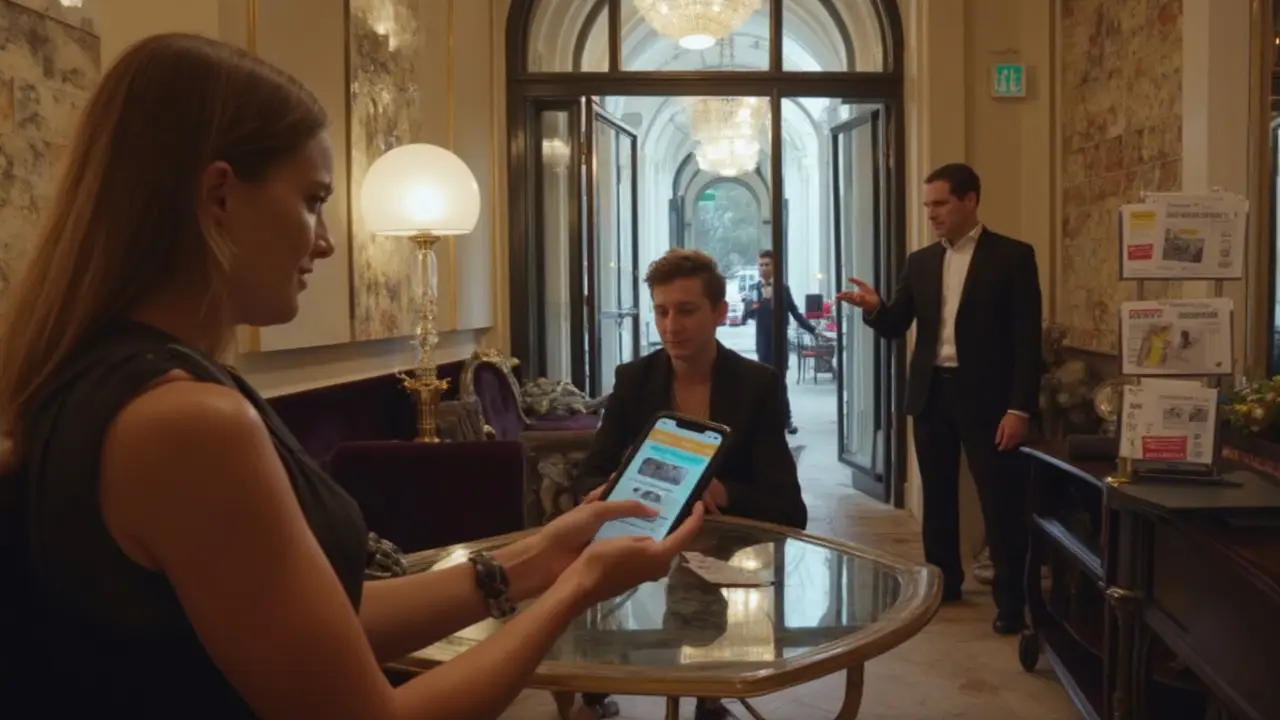TL;DR
- Paris draws solo travelers, executives, and event guests who want company for dinners, shows, and networking - not just nightlife. Escorts fill that social gap.
- In France, paying for sex is illegal for buyers since 2016. Companionship without sexual services is legal; brothels and pimping are illegal.
- Escorts influence tourism spend across restaurants, luxury retail, venues, and chauffeur services - a quiet but real slice of the nighttime economy.
- If you engage any companionship service, be crystal clear about boundaries, verify identity and legality, and follow hotel and company policies.
- 2025 trends: post-Olympics demand spikes, tighter platform vetting, and a bigger push for safety, consent, and worker rights.
What role do escorts play in Paris tourism today?
Paris sells romance, style, and conversation as much as monuments and museums. Not every visitor wants a whirlwind bar crawl or to eat alone after a long conference day. That’s where escorts - often working as independent companions or through vetted concierge circles - slot in. They’re hired for social presence, soft guidance around the city, and help navigating language or etiquette. For many travelers, that means a polished dinner date, a seat-filling plus-one at a gala, or simply smart company at a wine bar after a trade show.
This is less about sex and more about social bandwidth. Executives visiting for fashion week want someone who knows how to move through a private view or a members club without friction. Solo travelers want an easy conversation over bistro classics and a late jazz set. A surprising pocket of demand comes from event hosts who need charming table partners for VIPs, brand activations, or hospitality suites. Paris has a packed calendar - fashion months, art fairs, tech expos, and film festivals - and that keeps the market active well beyond weekend tourism.
Escorts also act like micro-concierges. They know which brasseries still accept late walk-ins, how to steer a tasting flight at a natural wine cave without looking lost, and what to skip when a guest has only one free evening. That knowledge saves time and reduces social friction for clients who are short-stay and high-intent.
Ripple effects matter. When a companion steers a client to a discreet cocktail bar and a bistro that still cooks past ten, the spend doesn’t end with the hourly fee. It rolls into restaurant bills, transport, club entries, dress rentals, and even last-minute boutique purchases. Hospitality insiders in Paris talk about this as “quiet demand” - hard to measure directly, but visible in bundled spend across nightlife and luxury categories.
As for who hires? The mix is broad. Business travelers attending conferences at Porte de Versailles, fashion buyers in town for shows, affluent solo tourists, and couples looking for a social guide for a night out. Many clients want polish, discretion, and good conversation more than anything else. Yes, some seek intimacy, but the legal framework in France sets a hard line there (more on that below). The social reality: escorts are part of how a certain slice of visitors make Paris feel immediate and less lonely.
Hotels and venues feel this too. Front desks in central arrondissements have refined guest policies because of escort traffic: strict ID checks for additional visitors, security camera coverage, and coordination with night managers. Some properties prefer working with known concierge contacts for reputational and safety reasons. The goal is simple - no disorder, no nuisance, and no legal complications around third-party profit from prostitution.
If you’re picturing an escort’s day, think logistics more than drama: pre-screening clients, agreeing on boundaries, choosing public meeting points, planning a route that hits the right notes (one drink here, a show there), staying alert to safety, and exiting cleanly. It’s part social craft, part timekeeping, and part risk management.
Legally, escorting as companionship is not prohibited. But the line changes the moment sexual services are bought. In France, the 2016 law against purchasing sexual acts makes the buyer - not the sex worker - criminally liable. That shapes how the Paris market operates: explicit sexual transactions are a legal risk for the client; social-only engagements are not.

Staying within the law: practical rules, ethics, and safety
Here’s the plain version of the French rules you actually need to know as a visitor or planner:
- Paying for sexual services is illegal for clients under Law n° 2016-444 (April 13, 2016). The offense sits in the Penal Code (often referenced via Article 611-1) and carries fines and potential mandatory awareness courses.
- Sex workers themselves are not criminalized by that purchase offense, but “proxénétisme” (pimping/profiting from the prostitution of others) is illegal under the Penal Code (notably articles around 225-5 and following).
- Brothels are illegal. Agencies that profit in ways fitting proxénétisme definitions face severe penalties.
- Public order rules still apply. Nuisance, harassment, and exploitation draw police attention regardless of labels.
If you want a social companion - dinner, galleries, a concert - keep it clear and keep it legal. If sexual services are on the table as a paid element, that crosses the legal line for the buyer in France. No ambiguity, no workaround.
For travelers: a practical, step-by-step checklist
- Define your intent in writing to yourself. “Dinner and a jazz set, conversational company, last drink, then part.” If you can’t write it down cleanly, you’re at risk of muddling boundaries.
- Verify identity and professionalism. Look for verifiable photos (reverse-image searches help), coherent profiles, stable contact details, and clear terms. Avoid anyone refusing basic safety checks or public meetups first.
- Agree on boundaries upfront. State plainly: no sexual services, public venues only, precise start/end times, and expenses (who pays what).
- Meet in a public place. A lobby bar or café gives both parties control. Share your plan with a trusted friend and use location sharing for the duration.
- Respect hotel policies. Ask your hotel about guest rules. If additional guests must register, follow the rule; if visitors aren’t allowed, don’t push it.
- Pay transparently for time only. Keep payments clean and documented. Tips are fine. Anything that looks like payment for sex is a legal risk.
- Trust your gut. If something feels off, call the evening early and leave politely. Safety over sunk cost.
Signals of professionalism
- Clear, written terms sent before the meeting (hours, rate, cancellation, boundaries).
- Willingness to meet publicly first and to show ID (with sensitive info masked) if you show yours.
- References or verifiable social presence that isn’t throwaway or chaotic.
- Consistency: profile details match speech, photos, and timelines.
Red flags
- Pressure to move immediately to a private room or to discuss sexual services for money.
- Refusal to meet in public first or to set boundaries in writing.
- Third parties steering the interaction (handlers in the shadows, pushy “drivers,” or sudden “security” fees).
- Venue changes at the last second that increase isolation or reduce control.
For hotels and event planners: a simple policy kit
- Write a guest visitor policy that’s easy to explain at check-in: ID required for all visitors after a set hour; visitors must depart by a set time unless registered; zero tolerance for nuisance.
- Train staff to stay neutral and safety-first. No moral theater at the desk; just apply policy, verify ID, and escalate only when needed.
- Keep clear records of incidents and third-party vendors. Avoid any arrangement that could look like profiting from prostitution (proxénétisme).
- Offer safe alternatives. Recommend reputable public venues and late-night transport options for guests who ask about “company.”
Ethics that keep everyone safe
- Consent is ongoing and specific. It can be withdrawn at any time without debate.
- Privacy is earned, not assumed. Don’t post photos, don’t tag locations in real time, and don’t discuss people without permission.
- Money doesn’t buy access to personal life. Time and agreed company - nothing more.
- Clarity beats romance. If boundaries are clear, both sides relax and the night flows.
A quick decision guide
- If you want platonic companionship for dinner and a show → agree on boundaries, meet in public, keep it legal and transparent.
- If you want sexual services for money in France → as a buyer, that’s illegal. Don’t do it.
- If you’re unsure about a person or situation → pause, verify, or walk away.
Sources you can look up for the legal ground truth: Law n° 2016-444 (April 13, 2016) on combating the prostitution system; French Penal Code provisions on proxénétisme (notably around article 225-5); and guidance from the Paris Prefecture on public order. Worker-rights perspectives are available from STRASS (Syndicat du Travail Sexuel) and health NGOs like Médecins du Monde.

Money, policy, and 2025 trends shaping the market
Paris tourism rebounded hard after the pandemic, then spiked around the 2024 Olympic and Paralympic Games. That left a lingering halo: packed event calendars, fuller hotels on shoulder seasons, and a flow of higher-spend visitors. In that environment, discreet companionship found more demand, especially around premium dining, art openings, and members clubs. Even when hotel occupancy dips midweek, the top tier of travelers still wants frictionless nights - and that’s where polished social company sells.
Measuring the economic footprint is tricky. There’s no clean line item in national accounts for “escort-driven spend.” But if you talk to restaurateurs near the Golden Triangle or jazz clubs in the 1st and 6th, you’ll hear the same patterns: late dinner for two after a vernissage, champagne by the glass, a car waiting, and a boutique stop caught on next-day receipts. Add it up across a year and the spend is meaningful - not headline-size like fashion week hotel blocks, but persistent.
Policy keeps shaping how this market behaves. Since 2016, France has targeted demand by penalizing the purchase of sex. That tilts the legal risk toward clients while leaving space for companionship that’s non-sexual. On the supply side, enforcement against proxénétisme keeps pressure on agencies that drift into illegal territory. Most workers who want to stay safe and independent lean into clear “social-only” positioning, written boundaries, and meet-in-public norms.
Worker safety remains a live issue. Unions like STRASS argue that criminalizing buyers pushes risk onto workers by making clients more secretive. Health groups point to evidence that stable, non-criminalized engagement improves safety outcomes. You’ll see that debate in French media every few months, usually after a policing sweep or a tragic incident. Whatever your stance, one thing is certain: consent, clarity, and public meetups reduce risk for everyone.
Digital platforms are cleaning up too. Expect to see more ID checks, deposit requirements, and hard bans on sexual solicitation in 2025. That trend mirrors broader platform governance across travel and events. It also means that travelers who want to stay firmly in the legal green zone will have an easier time finding explicitly platonic companionship options - sometimes under labels like “social guide,” “dinner companion,” or “cultural host.”
For businesses, 2025 is about compliance and guest experience. Hotels that write simple, humane visitor policies avoid ad hoc decisions at 1 a.m. Event organizers who plan for plus-ones and social hosts (with clear contracts and codes of conduct) get better guest satisfaction scores and fewer headaches. The city’s nightlife charter and tourism board messaging push the same idea: welcome the spend, curb the harm.
Heuristics that work in Paris right now
- Public-first rule: every first meeting in a public place. It solves most safety issues before they start.
- Time, not promises: pay for time and company; avoid any conversation that ties money to sexual acts.
- Policy alignment: match hotel, employer, and local law. If there’s tension between them, follow the strictest rule.
- Exit routes: both parties should have a clean, face-saving exit planned at the 60-90 minute mark.
Case examples
- Business traveler on a 24-hour layover: They book a two-hour dinner date with a French-English companion who picks a classic bistro that serves late. Clear boundaries, two glasses of wine, a walk to a taxi rank, separate rides home. Total spend: time fee, dinner, transport. Legal and calm.
- Fashion buyer during shows: Needs a polished plus-one who understands industry small talk. They plan a pre-event coffee, attend a presentation, and cycle through three after-parties, then sign off at the hotel lobby bar. No private room, no ambiguity.
- Event host managing a VIP table: Contracts a roster of cultural hosts with written codes of conduct, dress guidelines, and a firm end time. Security and guest services are briefed. The night is lively, safe, and complaint-free.
Mini-FAQ
- Is it legal to hire a companion for dinner in Paris? Yes. Paying for company and time is legal. Paying for sexual services as a buyer is illegal under the 2016 law.
- Do hotels allow escorts? Hotels set their own visitor policies. Many require visitor ID and limit late-night access. Ask, and follow the rules.
- Can agencies operate legally? Any setup that amounts to proxénétisme (profiting from prostitution) is illegal. Companionship-only facilitation in clean legal lanes is safer, but agencies sit under scrutiny.
- What about safety for workers and clients? Public meetups, verified identities, written boundaries, and location sharing are strong baselines. Many independents also use check-in buddies.
- Are there fines for buyers? Yes. The purchase of sexual acts can bring a fine (often cited around €1,500 for a first offense) and a mandatory awareness course, with higher penalties for repeats.
Next steps and troubleshooting
- If you’re a traveler seeking social company: Write down your plan (venue, time window, budget, boundaries). Choose public-first. Verify identity. Keep payment tied to time, not acts. If the conversation drifts into illegal territory, end it.
- If you run a hotel: Publish a one-page visitor policy, train staff in neutral enforcement, and document incidents. Coordinate with security on late-night lobby patterns.
- If you plan events: Hire cultural hosts under clear contracts with a code of conduct. Set end times, provide transport, and keep everything inside public spaces you control.
- If you’re local and curious about the industry: Read the 2016 law, Penal Code articles on proxénétisme, and worker perspectives from STRASS. It will sharpen how you read media stories.
- If something goes wrong mid-evening: Move back to a public place, call the night off politely, and arrange separate transport. Safety trumps sunk costs every time.
The honest picture is simple: escorts in Paris tourism exist at the intersection of hospitality, nightlife, and law. If you want the social magic - the witty dinner, the smooth entry, the feeling that you’re exactly where you should be - you can have it while staying legal and respectful. That means clarity, consent, and public-first choices. Do that, and Paris will meet you halfway.

